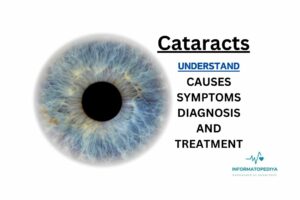
Table of Contents
Nutritional Facts and Benefits of Eggs: A Powerhouse of Essential Nutrients
Introduction:
Eggs have long been a staple food in many cultures around the world. Not only are they versatile and delicious, but they also offer a wide range of essential nutrients that are beneficial for our health. In this article, we will explore the nutritional facts and numerous benefits of eggs, highlighting why they deserve a place in your balanced diet.
Nutritional Facts:
Eggs are a nutritional powerhouse, packed with a variety of important nutrients. Here are the key components found in a single large egg:
- Proteins: Eggs are an excellent source of high-quality protein. A large egg contains around 6 grams of protein, providing all nine essential amino acids necessary for the growth and repair of our body tissues.
- Healthy Fats: Eggs contain a balanced mix of healthy fats, including monounsaturated and polyunsaturated fats. They are particularly rich in omega-3 fatty acids, which are known for their role in promoting heart health, reducing inflammation, and supporting brain function.
- Vitamins: Eggs are a natural source of various vitamins, including vitamin A, vitamin D, vitamin E, vitamin K, and most B vitamins such as B12, riboflavin, and folate. These vitamins are crucial for maintaining good vision, strengthening the immune system, promoting cell growth, and supporting overall well-being.
- Minerals: Eggs are abundant in essential minerals like iron, zinc, selenium, and phosphorus. Iron is vital for oxygen transport and energy production, while zinc supports a healthy immune system. Selenium acts as an antioxidant, protecting cells from damage, and phosphorus plays a vital role in bone health.
- Choline: Eggs are one of the best dietary sources of choline. This nutrient is essential for brain development, cognitive function, and maintaining a healthy nervous system. It also plays a role in liver function and supports proper metabolism.
Benefits of Eggs:
- Muscle Development: The high-quality protein found in eggs is crucial for building and repairing muscles. It is an excellent option for athletes, fitness enthusiasts, and those looking to increase muscle mass.
- Weight Management: Eggs are low in calories but high in protein and healthy fats, which help promote a feeling of fullness and reduce cravings. Including eggs in your diet can assist with weight management by curbing excessive calorie intake.
- Heart Health: Contrary to past concerns, moderate egg consumption can be part of a heart-healthy diet. The healthy fats, vitamins, and minerals in eggs contribute to improved cardiovascular health by reducing inflammation, promoting healthy cholesterol levels, and supporting proper blood clotting.
- Eye Health: The antioxidants lutein and zeaxanthin found in eggs play a vital role in maintaining good vision and reducing the risk of age-related macular degeneration, a leading cause of blindness.
- Brain Function: Choline, a nutrient abundant in eggs, supports brain development in infants and cognitive function in adults. It has been linked to improved memory, mental alertness, and reduced risk of cognitive decline.
Conclusion:
Eggs are an incredibly nutritious food that offers a host of health benefits. Packed with high-quality proteins, healthy fats, vitamins, minerals, and choline, they are a valuable addition to a balanced diet. From supporting muscle development and weight management to promoting heart health, eye health, and brain function, eggs prove their worth as a versatile and nutrient-dense food. So, go ahead and enjoy eggs as a part of your healthy eating routine, reaping the benefits they have to offer.







Your blog is like a virtual mentor guiding me through various topics.